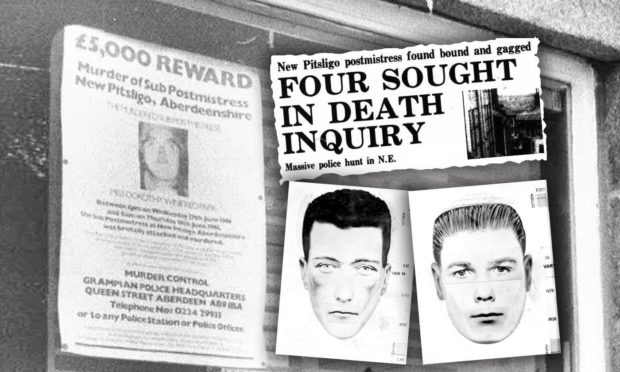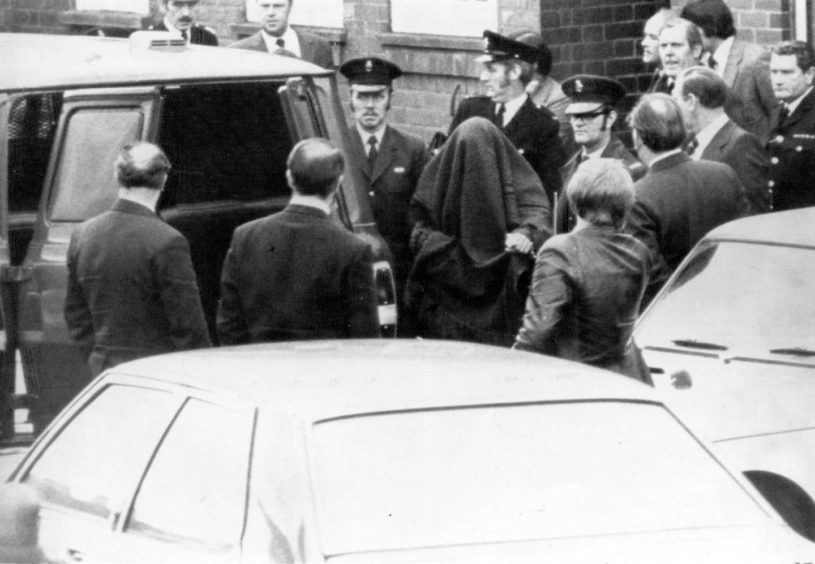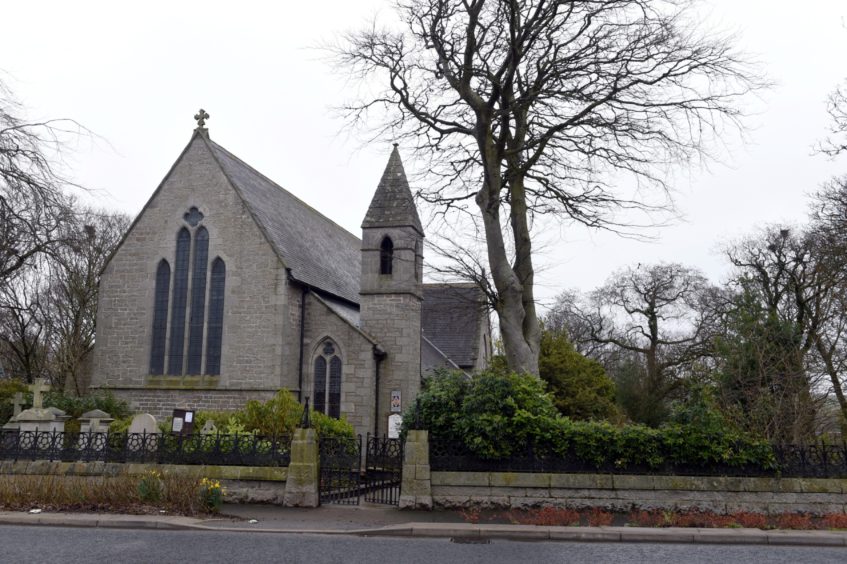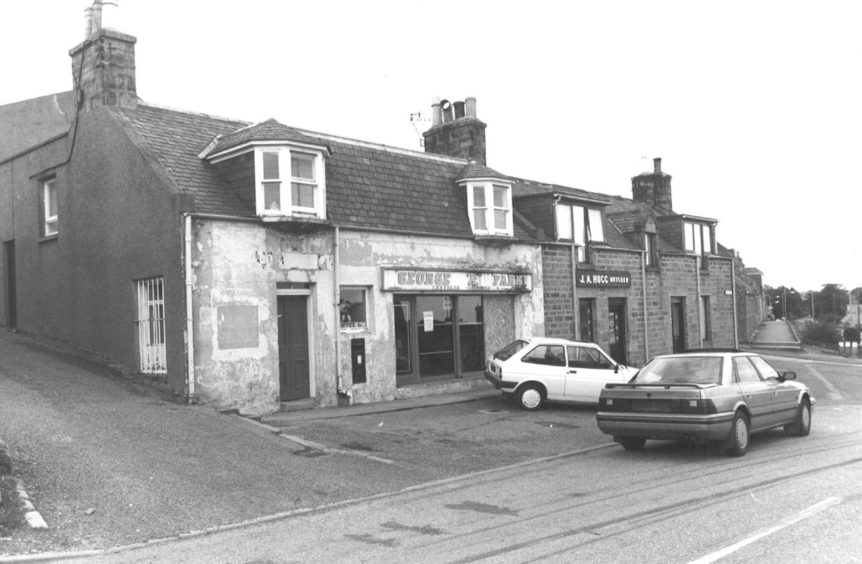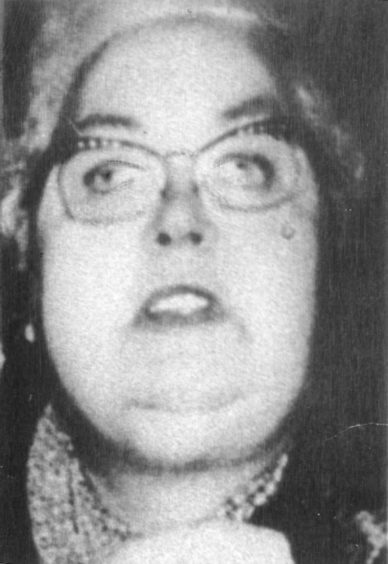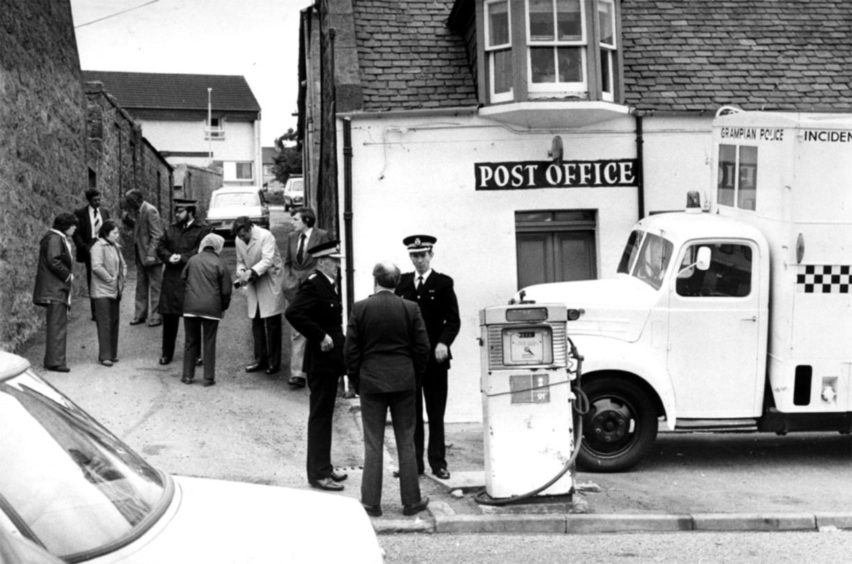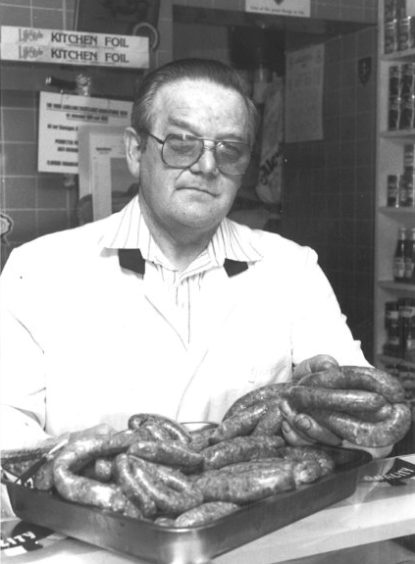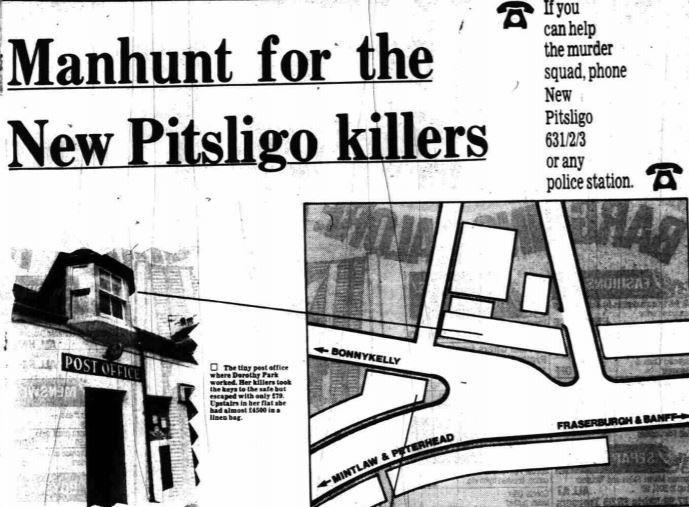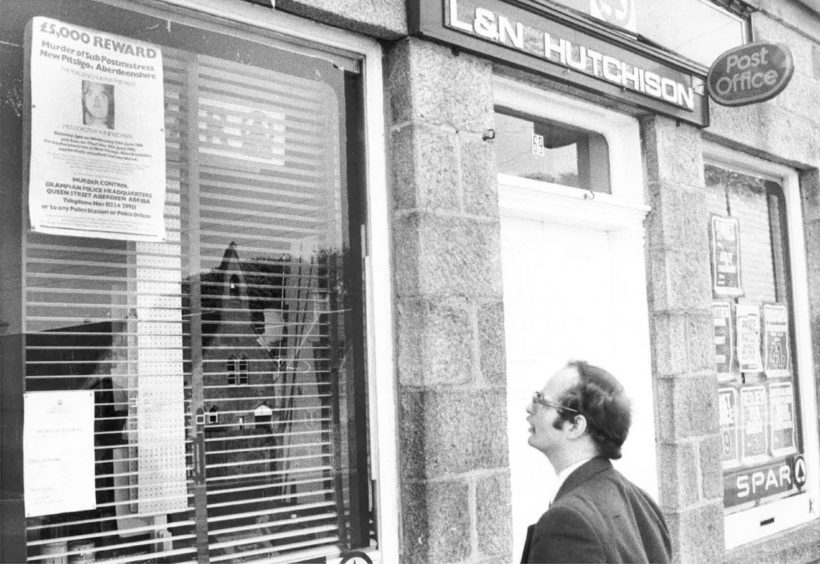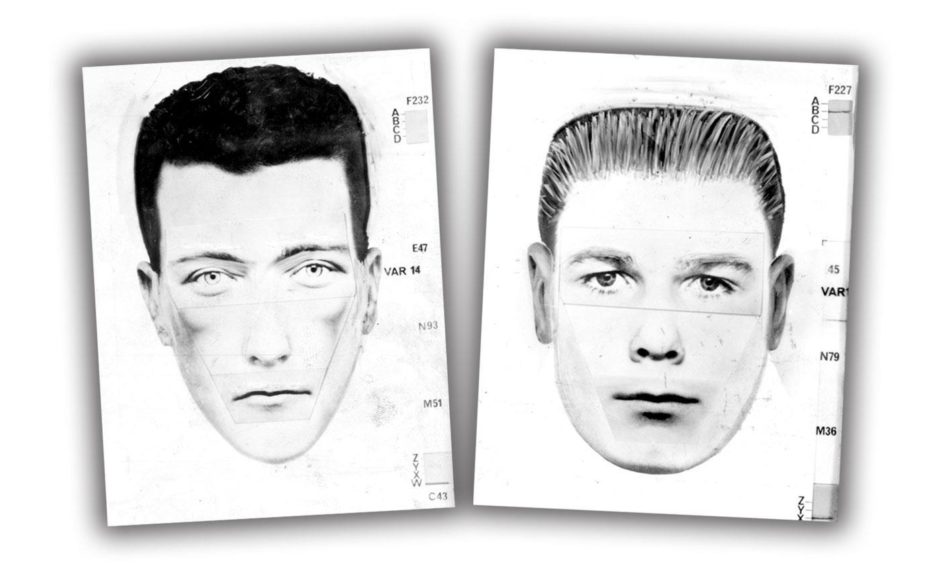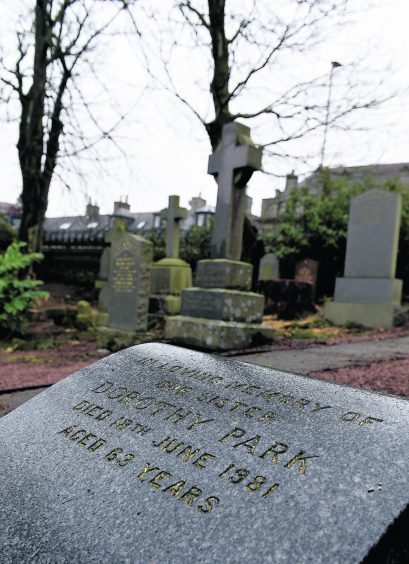The search is still on for the raiders who left New Pitsligo’s cheerful postmistress for dead in a bungled robbery in 1981.
The terrifying incident put the fear into other sub-postmasters and mistresses that a Black Panther copycat was on the prowl in the north-east.
In winter 1975, one of Britain’s most infamous serial killers, Donald Neilson carried out a string of murders and assaults in England, targeting sub-post offices where staff tended to work alone.
He was nicknamed the Black Panther in the press due to his dark clothing and seemingly untraceable movements.
Did the high-profile serial killer inspire a robbery at the sleepy New Pitsligo Post Office, in which Dorothy Park was the unintended victim?
The shocking crime has cast a shadow over the village for decades, and now 40 years on, there is still no closure for Dorothy’s family and her great number of friends.
‘The life of the village’
Dorothy was a New Pitsligo lass born and bred – a kind, caring figure in a tight-knit, rural community.
The Parks were a respected family. Dorothy’s father had been the postmaster before her – a role she then served with gusto in the 20 years before her death – and a brother George ran the local garage.
She knew everyone in the village, and folk spoke of “visiting Dorothy’s” rather than “going to the post office”.
Dorothy was a lifelong member of the church, a member of the WRI, she organised bus trips for villagers and was always willing to help out in the community.
In her younger days she ran Scottish country dancing classes and was well known in nearby Strichen after working at the post office there, and in Fraserburgh where she had worked at the County Garage.
Locals described her as the “life of the village”, and the president of the senior citizens’ club said at the time: “Not a person from New Pitsligo went into hospital without getting a card from her”.
A day like any other
June 17 was a cold summer’s day, but otherwise like any other Wednesday in New Pitsligo.
The shops took the Wednesday half day, as was custom in the north-east.
They were bustling with villagers and folk from surrounding farms picking up items before they shut at lunchtime.
And there was an air of anticipation ahead of the upcoming gala.
Come 2pm, 63-year-old Dorothy had closed the post office, locked up and was upstairs in her flat with her assistant Mary Stephen enjoying a late lunch and a blether.
After doing the dishes, Dorothy sat by the window, watching the world go by, and had a quiet afternoon following her hectic morning.
An elderly friend later called by to drop off some bulbs.
Around 5pm a neighbour opposite noticed Dorothy leaving her window seat to make dinner, it was the last glimpse of her alive.
While the rest of the Buchan village slept, Dorothy suffered a terrible ordeal and suffocated to death in the post office flat where she had lived all her life.
A brutal murder
At 7.30am the following day, Betty Clark the newsagent popped past the flat to deliver Dorothy’s morning paper as per usual.
She quickly realised something was amiss when she could only open the kitchen door wide enough to see Dorothy was slumped against it.
Dorothy wasn’t the fittest woman, and weighing 22 stone, she wasn’t in the best of health.
Betty ran for Dorothy’s brother George, and the police were called.
Dorothy was found tied up and tightly gagged – the cheery postmistress had suffocated in a brutal murder.
A younger, fitter woman might have survived the ordeal, but it’s thought Dorothy died quickly.
The community was reeling as news of the terrible tragedy spread, and within hours the village was overrun by police and detectives.
Within hours, an attic above the village hall was turned into a headquarters for the 55 Grampian Police detectives assigned to the case.
It was described as being like a scene from Agatha Christie, police working diligently surrounded by theatre props and clutter.
It was found that only £79 had been stolen during the raid, not post office money, but Dorothy’s own from her sideline selling stationery.
Many sub-postmistresses ran their own businesses alongside their post office counter, making them particularly vulnerable to robberies.
But the £4,500 post office takings were in a bank bag on her sofa, untouched, along with her purse and personal belongings.
What happened that night?
A team led by Detective Superintendent Ian Robbie questioned every male over the age of 14, and house calls were made to every property in the village and within a five-mile radius.
Road blocks were in operation at the entrances to New Pitsligo and a special hotline phone number was set up.
Residents were anxious to help, they wanted justice for Dorothy, but clues were sparse.
The most likely motive for the incident was theft.
Two men – strangers to the village – were seen talking and pacing outside the post office between 6pm and 6.30pm on Wednesday.
Both were slim of average height, thought to be in their early 20s, one had dark hair, naturally curly on top, but tidy and short at the sides.
The other had fair hair, greased and combed back, one man was clad in denim, the other in a dark jacket.
Later that night, around 10.30pm, two people were seen in the lane next to the post office beside a blue car thought to be a Vauxhall Cavalier.
Unlike the Black Panther, Det Supt Robbie was convinced the men never intended to commit murder.
He believed the post office was a break-in by small-time villains gone wrong.
The men probably didn’t think Dorothy would hear them sneaking into the post office below the flat.
If she did, they would likely have assumed that an older women on her own would be too frightened to confront them.
They didn’t know she slept badly and was often awake during the night, and when disturbed, she did indeed come downstairs.
The fact the men only left the house with £79 led police to believe they panicked and viciously tied up Dorothy to silence her before she could raise the alarm.
Fears they could strike again
Dorothy’s next-door neighbour, village butcher John Hogg, heard nothing of the commotion.
He was only made aware when local constable Kenneth Williamson was first through the door of his shop the following morning.
Speaking in 2016, Mr Hogg said: “Our bedroom was just through the wall from Dorothy but I never heard a thing.
“Everyone was like me, they were in shock. They couldn’t imagine anything like that happening in the village.
“There were no suspects or anything that we could have thought of.”
But nobody saw or heard anything, police investigations drew a blank.
Det Supt Robbie was sure the raid was pre-planned, and added: “They went to the house above the post office and they must have had some reason for going there.
“One possibility is that they went there to get the keys.
“There’s always the possibility they could strike again.”
New Pitsligo was on the busy main road from Peterhead to Banff, and strangers were constantly travelling through it.
On one night patrol alone, police counted 28 vehicles passing through the village between midnight and 6am.
It complicated the inquiry; the suspects could have been anyone from anywhere who left again without trace.
The village gala went ahead, nobody was feeling jubilant, but officers mingled with the crowds hoping for a vital tip-off.
Anxiety at neighbouring post offices
Even a £5,000 reward put up by the Post Office for information leading to an arrest didn’t bring in any clues.
Leaflets about taking extra security precautions were issued to rural branches, the crime was a sinister reminder of the Black Panther only a few years before.
This was of little comfort to the staff of nearby rural post officers, nor local MP Albert McQuarrie who wanted reassurances for anxious employees.
In the days after Dorothy’s death, the National Federation of Sub Post Masters’ Alban Morgan said: “It doesn’t matter what kind of security you have, somebody is going to get around it. In the New Pitsligo case we think it’s a one-off event.
“But if you look back to the Black Panther cases we had three members murdered.
“The man was determined and we couldn’t do anything about it.”
After six weeks of 24-hour inquiries, the operation wound down and detectives left the makeshift control room in the village hall and headed back to B Division HQ in Bucksburn.
CID from the Scottish Crime Squad worked to eliminate suspects from outside Grampian, taking the manhunt nationwide, but still no perpetrators were found.
Crucial clue has never been found
It was a fortnight later – two months after Dorothy was killed – before police had a small breakthrough.
A Maud farmer revealed he had been out milking in the early hours of Thursday June 18 when he saw a light-coloured Cavalier speeding away from New Pitsligo at about 80mph.
Heading towards the Brucklay Castle road at 4.20am, the car was in poor condition and had rust on the doors and wheel arches.
He hadn’t realised the significance at the time, but it was the only clue officers had, and the information was immediately relayed to forces across Britain.
But the vehicle was never found and, despite the e-fits, the search for the two strangers outside the post office proved fruitless.
It was bitterly disappointing for Det Supt Robbie who knew it would be a hard case to crack after eliminating a domestic motive, and other known criminals with records for similar raids.
Speaking in 1992 after his retirement, he said: “Some men only cleared themselves by confessing to other crimes!
“Now you are basically dependent on somebody coming forward and giving you a clue.
“It was something I would have liked to have cleared up before I left.
“Basically I consider it a failure.”
But 40 years on, that crucial clue has never materialised.
Dorothy’s post office didn’t reopen and a nephew moved into her flat, but things were never quite the same in New Pitsligo knowing someone got away with murder in their midst.
One villager summed up the collective sentiment at the time: “We all felt much richer for having her among us.
“We all feel the poorer now that she is away.”
See more like this
